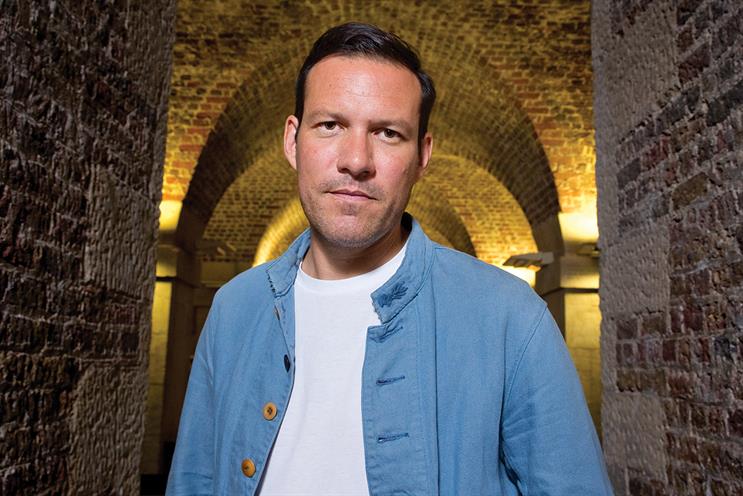
Role of the director
I’ve been trying to explain what I do to my parents for years and I still don’t think they’re any clearer on it now than when I began. I don’t think I am either, to be honest.
It’s a strange job to describe because there are so many facets to it and, rather than being a job, it’s really a vocation. From conference call to treatment to casting to prepping to communicating with your crew… you get the idea.
I guess, in a way, you’re the guardian of an idea and of your and the creatives’ vision. At least that’s how I see it. I like to think I can get to the essence of the idea on the page and interpret it in a way that I think is somehow arresting and hope that others feel the same way.
I have no clue what I’d do if it ended tomorrow – a real fear that I think is a driving force for a lot of directors. You’re constantly waiting for the metaphorical "tap on the shoulder" and some entity saying: "You’ve been found out, mate. It’s done."
What the job entails
A director’s average day is pretty random. If you’re not shooting, prepping or pitching, you’re probably at home, picking your nose and staring out of the window or opening the fridge for the umpteenth time to see if there’s anything different in there from the last time you looked (which was probably about ten minutes earlier). I think these are the days I find hardest. There’s only so much pottering, so many afternoon matinees, so many exhibitions you can fill time with before you: a) question whether you’ll work again; or b) berate yourself for being a lazy piece of shit and not writing a film script or TV show idea.
One thing I don’t think many people realise is how lonely the pursuit of directing can be. It feels a bit like waiting around at an empty bus stop with no idea when the next one is coming.
When you get a job
Job booked, your life couldn’t be more different. One minute you’ll be picking your nose and staring into the fridge. One phone call later, you’ll feel like you’ve taken an "eight ball of speed" and are expected to have a full storyboard, cast, answer for everything and energy for your fifth pre-production meeting, where you’ll discuss in detail the blue vase on the mantelpiece that is in the extreme deep background. It’s bonkers but you can’t help but love it. I mean, you’ve been doing fuck all for six weeks – so why wouldn’t you?
How the director has evolved
Directing right now is a very different proposition than it was even two or three years ago. There’s a clamour to fill the infinite space created by the internet and social media. In my opinion, some clients seem desperate to do so without really understanding what this so-called content is and does, and whether anyone bothers watching it.
The result is a glut of work that, in contrast to everything I cherish about advertising, is utter bollocks that serves no-one. Talented creatives are expected to deliver fully formed ideas in the time it takes Mongo in Blazing Saddles to fart, and directors are having to do the same at their end (if you’ll excuse the pun).
Don’t get me wrong: I’m not a hater of all things social media. It can be brilliant when used in the right way. That is when the content is well-conceived and well-executed. Right now, that seems to be the last thing on the agenda – it’s just more, more, more, more. Pass me a bucket, I think I’m going to be sick.
I know of many directors, creatives and producers (agency and production company) who worry that all the real talent – especially new talent – is going to be suffocated by the merry-go-round of content we find ourselves on at the moment, where the idea of craft seems to have gone out of the window.
Why stories matter
I still believe that stories well told rise above the mediocrity and, in turn, provoke, inspire and financially deliver. And there are just about enough agencies, creatives, directors and clients to keep that alive. This kind of work is still the work that makes the difference. Hopefully, that penny will drop for those who employ agencies and production companies alike.
In a nutshell...
How will your job change in the next five years, and what are you doing to prepare for it? The technology may change over the next five years but I honestly believe the core principles of my job won’t. I remember when virals were all the rage and were going to be the death of traditional television advertising. Ten years later, we’re still here. In fact, rather than there being fewer avenues for moving image, there’s the problem now of quantity over quality. But, for me, the same rules apply – find those great ideas/stories and tell them well.
What do you need to be a successful director? Listen and don’t treat others in a way you wouldn’t like to be treated. And if you believe in something, stick to your guns.
What attributes do you look for when you are hiring someone to join your team? I want people who are going to make me look better.
Ringan Ledwidge is a director at Rattling Stick

